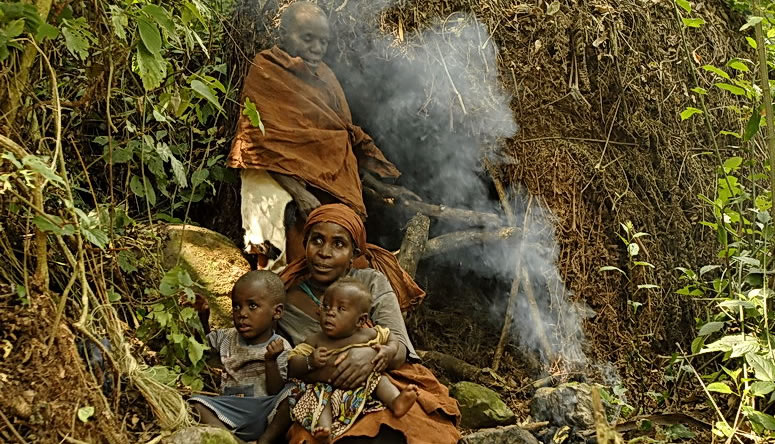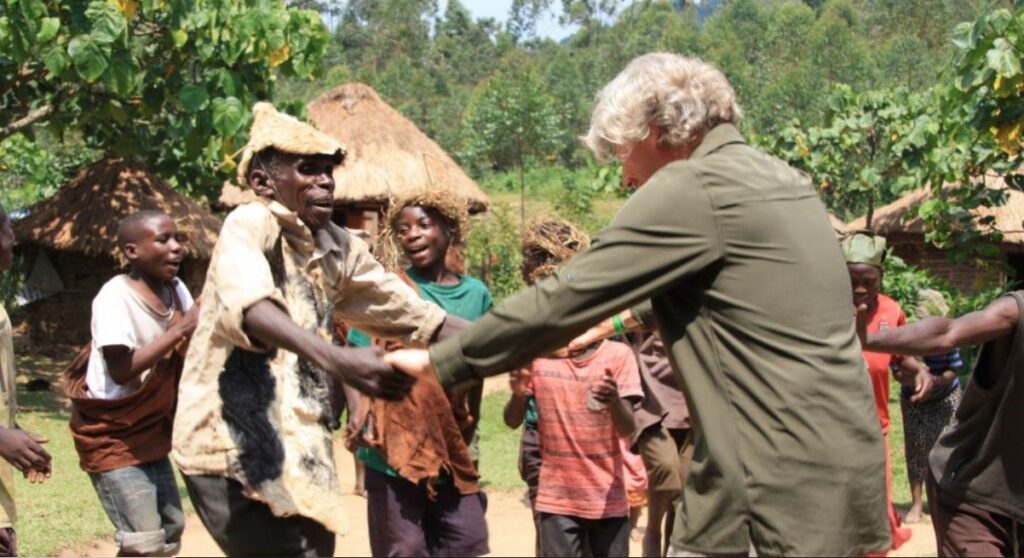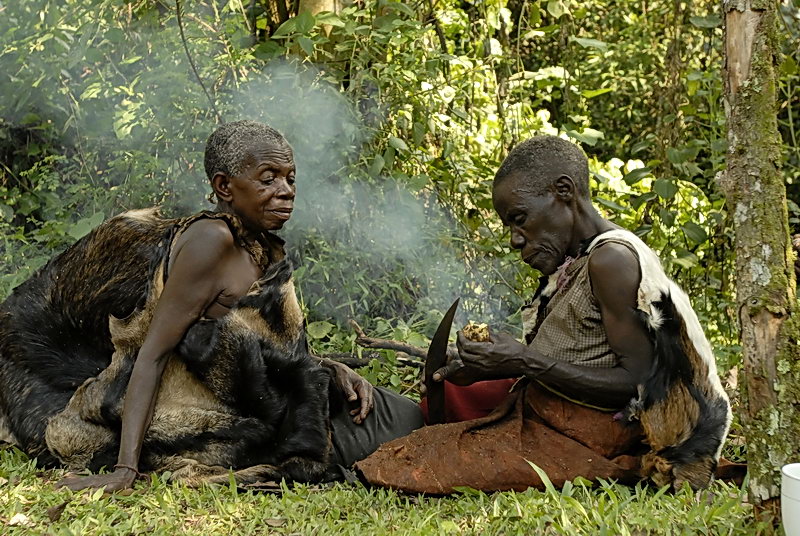The Batwa Pygmies of Uganda, History, culture, Where to find them
The Batwa Pygmies are an ethnic group located in Uganda, recognized for their diminutive height. They reside near the safeguarded forest areas of Bwindi and Mgahinga national parks. They also established themselves in the Echuya Forest Reserve, where they are known as the ‘Echuya Batwa.’ Mgahinga, Bwindi, and Echuya Forests are located in southwestern Uganda, specifically in the Kisoro, Kanungu, and Kabale districts. The Batwa Pygmies, commonly known as the ‘keepers of the forests,’ are regarded as the original inhabitants of the East African Great Lakes region.

Batwa Pygmies of Uganda ,They relocated from the Ituri jungles of Congo to the forests of South Western Uganda in pursuit of wild edible fruits and bushmeat. The Batwa exclusively engaged in hunting and gathering for almost a millennium until recently. Subsequent to departing from Congo and establishing themselves in the jungles of South Western Uganda, the Batwa Pygmies coexisted harmoniously with the indigenous wildlife. They relied on the forest for all their necessities, subsisting through hunting and foraging for fruits. The forests supplied medicinal herbs that may alleviate common diseases. The Batwa constructed ground shelters in the form of small cottages composed of reeds and leaves. Some favored establishing cover among the treetops. The Batwa people led a basic and tranquil existence, remaining self-sufficient among the vast forests without reliance on external influences. The Batwa infrequently encountered and mostly evaded other tribal groups residing beyond the forests. They were just removed from these forests by the authorities.

The strategy to displace the Batwa from the forests of South Western Uganda was devised in the 1930s by the then Colonial Administrators. It was implemented in the early 1990s following the designation of Bwindi National Park as a protected area for the Batwa pygmies. This signified that the Batwa Pygmies were have to abandon their sole residence. They were forcibly removed without recompense or designated land for resettlement. The government’s rationale for their removal from the woods of Bwindi, Mgahinga, and the broader Echuya was to advance wildlife conservation and tourism. The authorities believed that evicting the Batwa was necessary to protect the gorillas and chimpanzees from human-related diseases. Having no alternative relocation options and lacking familiarity with life beyond the forests, the Batwa opted to resettle on the peripheries of the Bwindi, Mgahinga, and Echuya forests.

The Batwa Pygmies – Existence Following Displacement from Their Forest HabitatAfter resettling outside the Bwindi, Mgahinga, and Echuya forests, the Batwa people’s lives underwent significant change. They were ill-equipped for the adversities of existence beyond the jungle. This existence encompassed agriculture, minor commerce, business acumen, or laboring to achieve financial stability. This lifestyle was foreign to the Batwa, who were habituated to foraging for wild fruits, hunting small wildlife, and indulging in honey from the forest. The Batwa were compelled to coexist with tribal groupings they had previously evaded and confront discrimination.
Batwa individuals in Uganda, The Batwa were compelled to transport cumbersome loads to marketplaces due to their inability to do the majority of tasks. Securing a position in the primary markets proved challenging due to the Batwa’s lack of merchandise. They possessed no previous experience in business operations or management. Over time, the Batwa people progressively became disconnected from their cultures and traditions. The loss was rapid due to the deep connection of their culture and traditions to the woodlands of their origin. Traditional practices like as recognizing herbal remedies, hunting, and gathering wild honey can only maintain their significance if the individuals persist in residing inside the forest.
The Contemporary Batwa Community
Batwa Pygmies of Uganda The current generation of the Batwa Pygmies has endeavored to acclimate to a new existence beyond the jungles of Southwestern Uganda. They have had to acquire survival skills for the benefit of their families. They currently cultivate fruits, vegetables, and crops such as potatoes for their living. The Batwa also raise livestock and maintain beehives to produce honey for sale at the market. A portion of the Batwa community has established music and dance ensembles to entertain tourists at their camps or in nearby hotels.
The Batwa people have been receiving assistance from governmental entities such as the Uganda Wildlife Authority (UWA), the National Forest Authority (NFA), and several development partners. The Batwa people of Uganda are supported by development partners and Non-Governmental Organizations, including the Kellerman Foundation and the United Organisation for Batwa Development in Uganda. These groups and governmental agencies have diligently assisted the Batwa people in acclimating to life beyond the jungle. They offer affordable social services such as healthcare, education, and access to clean water sources. The government and International Development Agencies supply materials to the Batwa for the construction of permanent residences. Regrettably, despite significant endeavors by the government and international development agencies, it is inaccurate to assert that the Batwa people have acclimatized to life beyond the forest. Many older members of the Batwa pygmy group in Uganda nostalgically recall their past life in the bush, reflecting on how effortless it once was. The younger generation of the Batwa tribe is adapting effectively. A multitude have adopted education and are thriving.
Many Batwa individuals have capitalized on the opportunities afforded by gorilla tourism. Some serve as guides or are employed in the hotels located in Bwindi and Mgahinga National Parks. They get revenue by selling souvenirs to tourists. The subject of adequate compensation for the Batwa over their evictions is a delicate problem that can only be addressed by the government.
Exploring the Batwa Community in Uganda
Most travelers to Bwindi or Mgahinga National Park for gorilla trekking typically include the Batwa Cultural experience for a comprehensive vacation. This is a method of assisting the Batwa community. The Batwa market trinkets and various artisan goods to tourists. Revenue derived from tourism aids in funding various initiatives that benefit the Batwa community. The Batwa tour in Bwindi is less exhilarating than the Batwa Trail conducted in Mgahinga. The experience in Mgahinga is prolonged and is intended to be conducted by the Batwa people themselves. The Batwa Trail in Mgahinga is conducted within the forest. Visitors are guided by the Batwa to their ancestral forest habitats, where they acquire knowledge about the lifestyle of these hunters and gatherers. Travelers are instructed in hunting techniques, the identification of indigenous medicinal herbs, and the recognition of various forest sounds. The experience in Bwindi immerses you in a Batwa hamlet on the forest’s periphery, providing traditional entertainment and insight into the inhabitants’ reliance on the forest for sustenance. The trip in Bwindi is brief and does not immerse you directly in the jungle for a genuine encounter.
Whether you choose the Batwa visit in Bwindi or the more extensive Batwa Trail in Mgahinga, anticipate acquiring substantial knowledge about the tribe. One can even ponder if it was appropriate to extricate them from the forest. A standard visit entails observing women as they prepare meals for their family and engaging with the community elders. The elders will impart crucial knowledge regarding the Batwa’s methods of hunting bush meat, harvesting honey, and identifying appropriate medicinal plants for healing the unwell. Conclude each encounter with delightful performances of music and dances by the dance troupes.
